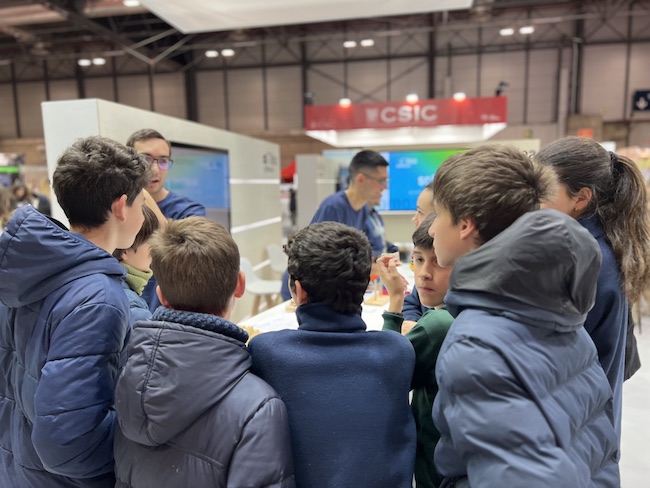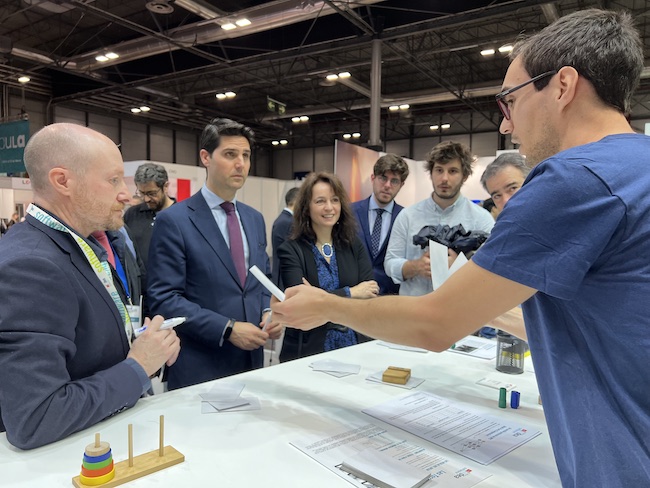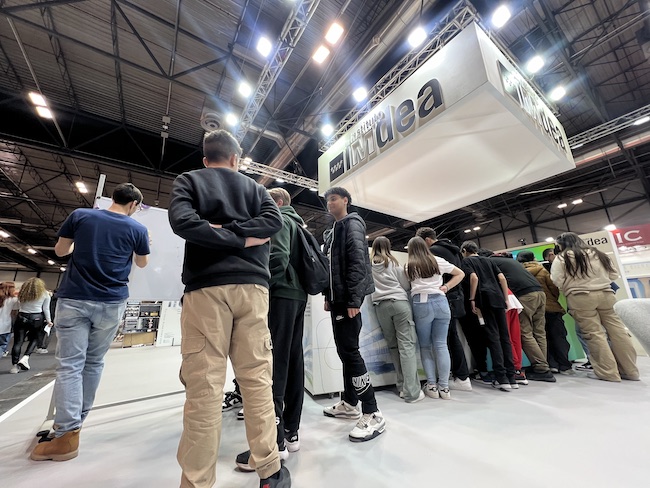The audience that came to “Madrid es Ciencia” was able to learn a little about software through engaging, thought-provoking and challenging activities and games.

Once again the IMDEA Institutes took part in the Madrid is Science Fair, organized by the Madri+d Knowledge Foundation within the framework of the Education Week that took place between March 7 and 9 at IFEMA.
The science outreach event aimed at school communities and the general public aims to: encourage scientific vocations by eliminating gender barriers; communicate the science and innovation that is carried out in the region; stimulate the interest and curiosity of young people for science; and show how research influences economic development and the welfare of society.

Educational centers, research centers, Madrid universities, companies, museums and other entities have participated in this edition.
The seven IMDEA Institutes had their own space within the common stand of 240 square meters. The proposals of the centers caused a real furor among the attendees. Thousands of people made a stop at the IMDEA Software space, which was attended by ten of its researchers: Claudia Bartoli, Daniela Ferreiro, Marcos Grandury, Georgia Christofidi, Daniel Jurjo, Manuel Carro, Diego Castejón, Konstantinos Papaioannou, Alejandro Rivosecchi, and Mario Carrillo.
The Vice Councilor for Universities, Research and Science of the Madrid Regional Government, Ana Ramírez de Molina and the President of Madri+d, Federico Morán, visited the IMDEA stand on Thursday morning accompanied by directors and general managers of the research centers, including María Alcaraz, manager of IMDEA Software. During their visit to the IMDEA Software booth, the PhD student Claudia Bartoli explained some of the cryptographic principles she is working on.

On Friday morning, the Councilor for Education, Science and Universities of the Madrid Regional Government, Emilio Viciana, together with Ana Ramírez de Molina and Federico Morán visited the seven IMDEA spaces one by one. Manuel Carro, Director of IMDEA Software, welcomed the group and briefly explained what multy-party computation (MPC) is and what it is used for. Afterwards, the PhD student Diego Castejón showed them, through a card game, how this technique is used to make calculations on private data without being revealed.

The activities proposed by IMDEA Software have been a complete success. Students between 8 and 16 years old, parents and teachers have been able to learn about MPC, immerse themselves in cryptographic challenges, play to hanoi towers, or learn how to use parallelism to solve complex problems more efficiently.